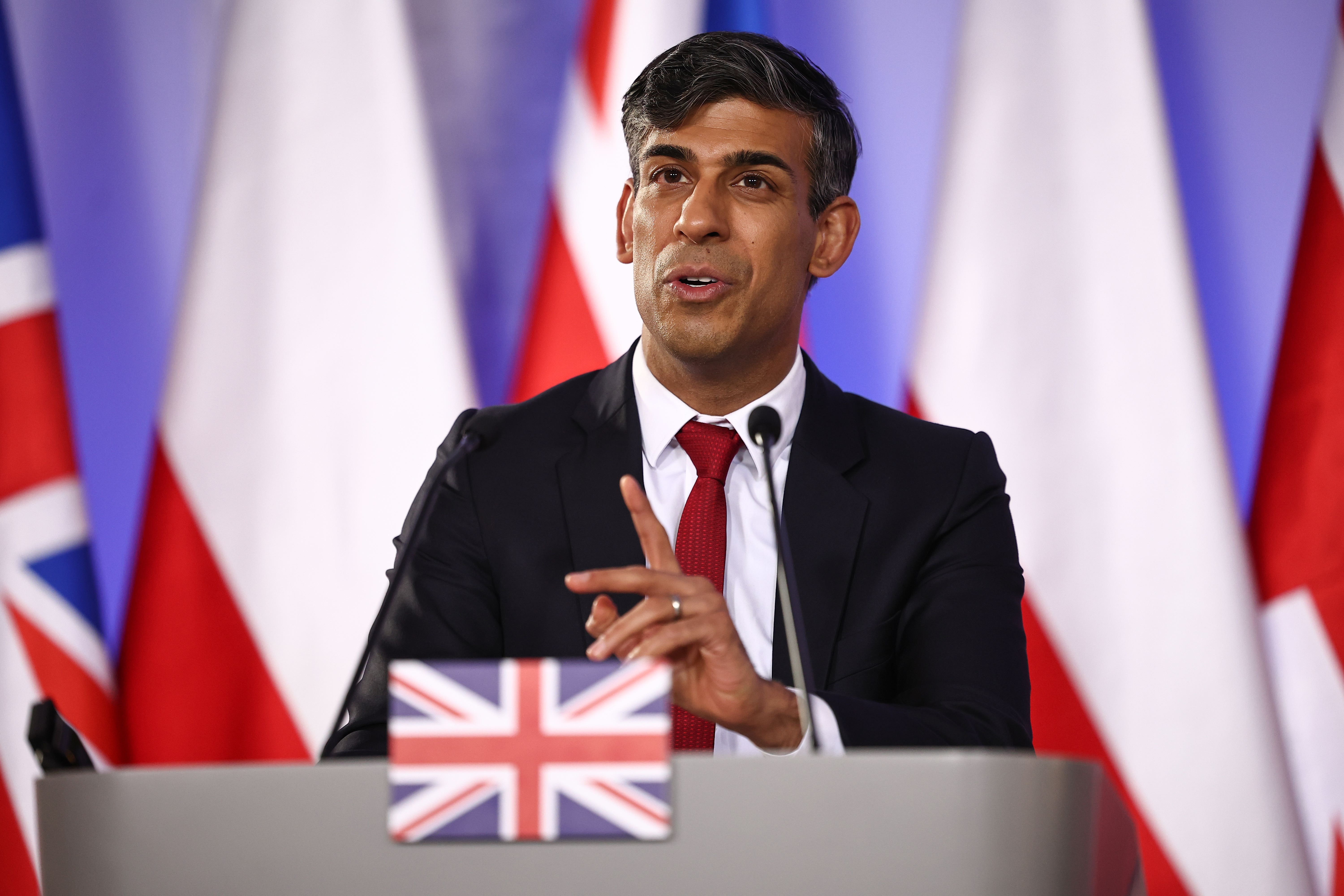Rishi Sunak’s general election dilemma is not getting any easier
Editorial: With a defection, plotting by rebel Conservative MPs and the threat of significant losses in local elections, the pressure is on the prime minister over the timing of sending Britain to the polls

Speculation about a snap general election has been swirling around Westminster for days. In an interview with Sky News, aired on Sunday, the prime minister refused to rule out a summer election but refused to rule one in either. The betting remains on the autumn, but the variables are many.
Once speculation about the timing of a general election has taken off, there is a sense in which any prime minister is damned if they do and damned if they don’t. Gordon Brown paid the price for being judged to have “bottled it” in the autumn of 2007 after what was seen as a generally successful first few months in power. It was a fateful decision that weighed on his time in Downing Street and probably contributed to his defeat three years later.
Theresa May arguably drew the lesson from that, calling a snap election as she approached her first year in office, only to lose the small, but serviceable, majority that she had inherited. The protracted parliamentary tussle over implementing Brexit was a consequence, and ultimately cost her her job.
For Rishi Sunak, the odds might seem clearer. After all, how much does he have to lose? By every possible forecast, the Conservatives currently have little chance of returning to government, whatever the timing. The only question would seem to be by how much, if at all, they can limit the losses. Would it be preferable to call an election sooner, reducing the chances for further internal party mischief-making, or later, in the hope of an upturn in economic and other indicators?
Until late last Friday, Sunak had had a rare good week. He had managed, finally, to get the Rwanda legislation passed in the early hours of Tuesday morning – one of the arguments for which was underlined by a tragedy in the Channel the day before. The prime minister showed the flag convincingly in Poland and Germany. He announced an increase in UK defence spending to 2.5 per cent of GDP by 2030 – a popular move among Conservatives, which drew a line between the government and Labour, which shares the aspiration but has not set a date. And he could claim modest good news on the economic front, with energy prices and inflation falling, and average pay on the rise.
Then, though, came the bombshell from Dan Poulter, MP for Central Suffolk and North Ipswich, a medical doctor and a former health minister, that he was switching to Labour and would campaign for his new party at the next election. Suffice to say that a defection is damaging to any governing party, but especially to one that is already in trouble. Then for the particular MP to be a medical doctor with current experience of what he sees as the disastrous front line, and the NHS likely to be a prime issue at the next election, Sir Keir Starmer could hardly have wished for more.
Keeping the country guessing, however, holds risks of its own. This week’s local and mayoral elections will offer some idea of the lie of the political land; some idea too, perhaps, of the scale of the likely Conservative defeat in a general election – although local elections have their specifics, which make them a less than perfect predictor of the national vote.
Sunak clearly hopes his reduction in National Insurance contributions, which will increase most people’s take-home pay this month, could reduce the losses. It is nonetheless forecast that the Conservatives could potentially lose up to 500 of the 900 or so seats they are defending. If they also lose either or both of their two flagship mayors – Andy Street in the West Midlands and Ben Houchen in Tees Valley – this would inevitably turn up the pressure on Sunak, to the point where he could face a vote of no confidence or a leadership challenge, or both. Plumping for an early election before those results could pre-empt new ructions of the sort that would be bound to sap Conservative support further – as could be seen in recent days.
The flurry of general election rumours have been accompanied by insistent conspiratorial noises from some Conservative rebels. One set of rumours suggested a move to install a more centrist leader with possibly wider appeal than Sunak – the leader of the House, Penny Mordaunt, being in the frame here, despite firm denials on her part. Still more corrosive was a reported plot from the right, with a plan called “100 days to save Britain”, in a clear nod to Liz Truss’s recent memoir, the idea being to devise a programme that would compete with the appeal of the Reform Party. If the Conservatives want to damage their electoral chances, they could hardly find a better way.
The prime minister’s difficulty is that, unless the local election results turn out to be a lot less damaging than forecast, such rumours and plots will only multiply until a decision is taken on the election. Rishi Sunak may hope that, if he rejects a summer vote, he will be able to use the time to notch up some voter-pleasing achievements. With his critics seemingly in no mood to give up on their destabilising efforts, this is not necessarily so.



Join our commenting forum
Join thought-provoking conversations, follow other Independent readers and see their replies
Comments